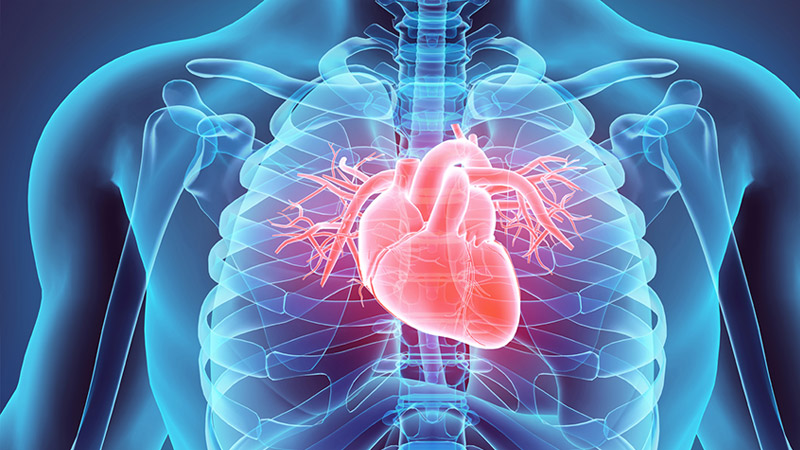Diagnostics
Myocardial scintigraphy

What is a myocardial scintigraphy?
A myocardial scintigraphy allows the blood flow in the heart muscle to be visualised. This non-invasive procedure is necessary to reliably assess coronary heart disease (CHD) or circulatory disorders (ischaemia) and to make the resulting therapeutic decisions.
How does the examination proceed?
Including ergometry, a myocardial scintigraphy takes about 90 minutes. First you will be injected with a weakly radiopharmaceutical and, if necessary, regadenoson. After a waiting time of about 60 minutes, various images are taken over a period of 20 minutes. During the break between the injection and the recording, you should eat something fatty and drink water. You should avoid drinks such as coffee, green and black tea, as well as liquids containing cocoa and carbon dioxide, as these could falsify the results.
What should I bear in mind before the examination?
The examination should not be carried out during pregnancy. During a breastfeeding period, breastfeeding should be suspended for at least 24 hours.
Are the costs reimbursed?
A myocardial scintigraphy is a statutory and private health insurance benefit.


